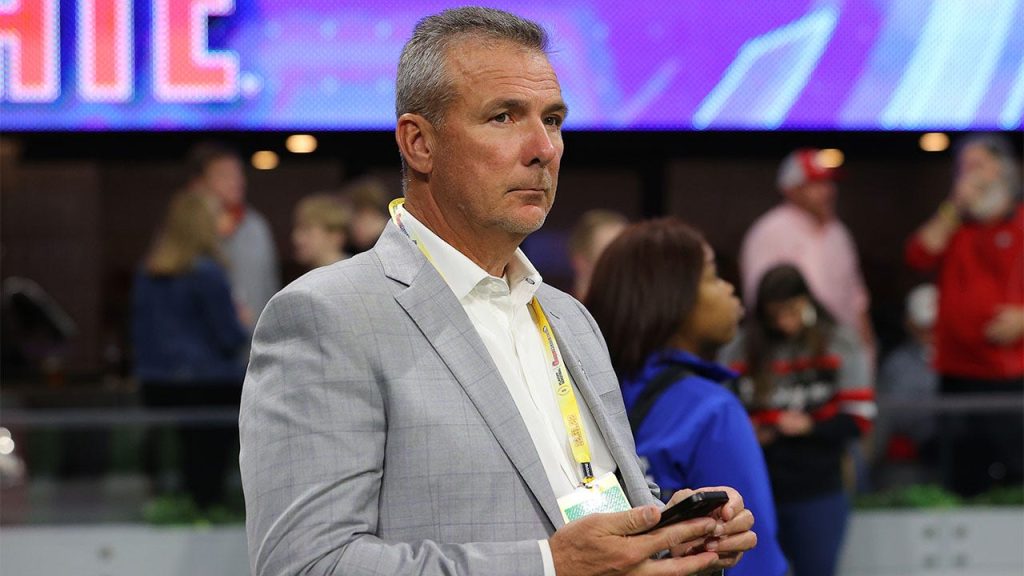Urban Meyer, a three-time national champion football coach, recently expressed his concerns about the current state of Name, Image, and Likeness (NIL) in college athletics. Meyer believes that NIL has turned into a form of “cheating” in recruiting, as donors are essentially paying players to attend their school. He mentioned a scenario where a 17-year-old demands money for a visit or is paid a large sum of money to make a brief appearance at a charity event, which he views as unethical. Meyer, who retired from coaching six years ago, was surprised by how NIL has evolved since then.
While Meyer acknowledges that NIL can be beneficial when used appropriately, he is critical of the way it has been exploited for financial gain by donors and players alike. He believes that allowing athletes to use their name, image, and likeness to promote businesses or products is acceptable, but the current system has devolved into a form of capitalism that goes against the original intent of NIL. Meyer mentioned the practice of donors pooling money to pay players, which he views as a distortion of the concept of NIL.
During his coaching career, Meyer led successful programs at Ohio State and Florida, winning three national championships. He also had a brief stint with the Jacksonville Jaguars in 2021 but was fired early in the season due to poor performance. Meyer’s comments on NIL reflect his disappointment with how the system has been manipulated for the benefit of donors and players, rather than serving its intended purpose of allowing athletes to profit from their own likeness. He emphasizes the importance of upholding the integrity of college athletics and ensuring that NIL is used responsibly.
Meyer’s concerns about NIL echo those of other coaches and sports figures who worry about the impact of allowing players to profit from their name, image, and likeness. While he acknowledges the potential benefits of NIL for athletes, he believes that it has strayed from its original intent and become a source of corruption in the recruiting process. Meyer’s perspective, shaped by his experience in college and professional coaching, offers valuable insights into the challenges and ethical considerations surrounding NIL in modern sports.
As discussions about NIL continue to evolve, Meyer’s criticisms highlight the need for greater oversight and regulation to prevent abuses of the system. By addressing the concerns raised by Meyer and others, policymakers and sports officials can work towards creating a fair and transparent framework for athletes to benefit from their name, image, and likeness while upholding the integrity of college athletics. Meyer’s perspective serves as a reminder of the importance of ethical practices and accountability in the evolving landscape of collegiate sports.


